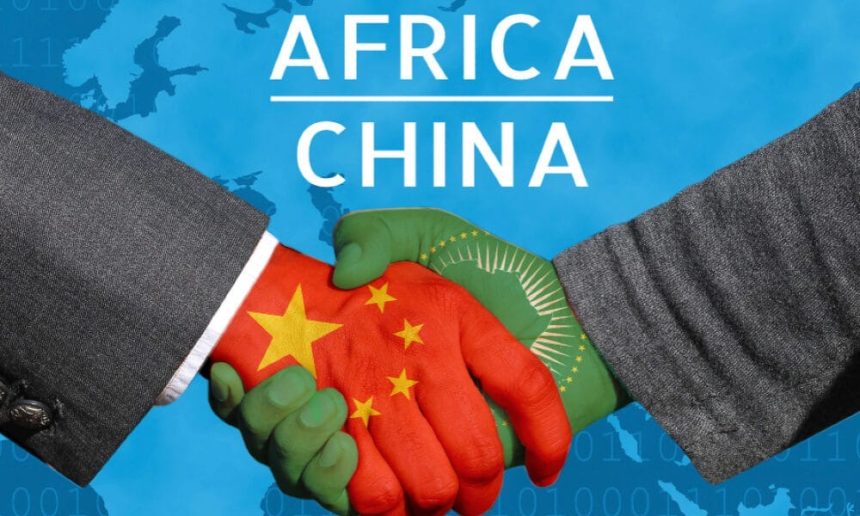China-Africa Trade Revolution: Unlocking Opportunities Through Zero-Tariff Policies
By: Mr. Dahir Abdullahi Mohamed (OK)
Overview
Many African countries, constrained by their natural resources and production capabilities, rely heavily on trade to meet the needs of their populations. However, global trade is often influenced by policies, geopolitics, and economic competition, which can create tensions between trading partners. One common approach to addressing these disagreements is the imposition of tariffs. A tariff is a tax levied by a country on imported goods and services to influence trade, generate revenue, or protect domestic industries.
China, since initiating its economic reforms in 1978, has experienced remarkable growth, averaging over 9% annual GDP growth. This transformation has lifted nearly 800 million people out of poverty and significantly improved access to healthcare, education, and other essential services. Today, China is an upper-middle-income nation, but it continues to face challenges such as economic and environmental imbalances. Addressing these issues requires a shift toward service-based industries, increased consumption, and reduced carbon emissions.
China’s involvement in global environmental and developmental issues is pivotal. While not the primary contributor to historical carbon emissions, China is currently responsible for nearly one-third of global annual CO2 emissions. Despite these challenges, China’s economy grew by 5.0% in the first half of 2024, driven by consumer spending, exports, and infrastructure investments.
China’s Zero-Tariff Initiative
At the 7th China International Import Expo and the 2024 Summit of the Forum on China-Africa Cooperation (FOCAC) held in Beijing, China announced the extension of zero-tariff treatment to products from 33 African countries. This initiative seeks to bolster industrial cooperation, facilitate trade, and enhance China-Africa relations.
Ye Hailin, dean of the China-Africa Institute at the Chinese Academy of Social Sciences, emphasized that the removal of tariffs is designed to catalyze industrialization and economic growth in Africa. The Ministry of Commerce reported that China-Africa trade reached a historic $282 billion in 2023, a 1.5% increase from the previous year.
Key Benefits of Zero-Tariff Treatment
1. Optimizing Trade Relations
- The elimination of tariffs reduces costs for African exporters, allowing them to compete more effectively in the Chinese market.
- Improved infrastructure, governance, productivity, and access to finance are necessary to optimize trade opportunities for African countries.
- Increased foreign investment can further enhance Africa’s competitive edge in global markets.
2. Expanding African Export Channels
- The zero-tariff policy covers 47 tariff lines and 140 products, including rice, wheat, sugar, cotton, soybean oil, and wood products.
- The initiative allows African exporters to reach China’s vast market, boosting revenue and driving economic growth.
- The establishment of a “green channel” facilitates the export of high-quality African agricultural products to China.
3. Fostering a Balanced Trading Environment
- China’s zero-tariff policy is a significant gesture of South-South cooperation, supporting development priorities across the Global South.
- Infrastructure connectivity projects, logistics collaborations, and digital trade agreements strengthen trade frameworks.
4. Advancing Agricultural Cooperation and Technology Transfer
- China supports Africa’s agricultural modernization by sharing technology and building localized production facilities for fertilizers, pesticides, and agricultural tools.
- Joint efforts include satellite remote sensing centers, meteorological stations, and eco-friendly agricultural initiatives.
- E-commerce platforms and digital cooperation further enhance trade in African cash crops.
5. Promoting Cultural and Think Tank Exchanges
- Deepening cultural exchanges enhances mutual understanding between China and Africa, fostering closer ties.
- Think tanks play a pivotal role in sharing knowledge, conducting joint research, and supporting practical cooperation initiatives.
6. Driving Industrialization and Green Development
- China and Africa collaborate on projects promoting green energy, disaster prevention, and biodiversity conservation.
- Industrial cooperation extends to sectors such as smart cities, 5G networks, and digital trade.
Case Study: Yiwu as a Trade Hub for African Entrepreneurs
Yiwu, China’s largest commodities market, has become a key destination for African entrepreneurs. Senegalese businessman Diouf Amassamba exemplifies the success of Africans in Yiwu, managing a thriving business that supplies kitchen hardware and furniture to Africa. Amassamba also serves as the general secretary of Yiwu’s African community, which supports over 4,000 African traders.
China-Somalia Strategic Partnership
During the 2024 FOCAC Summit, Chinese President Xi Jinping and Somali President Hassan Sheikh Mohamud announced a strategic partnership between the two nations. This partnership underscores China’s commitment to supporting Somalia’s sovereignty, development, and peacebuilding efforts.
Conclusion
China’s zero-tariff treatment for 33 African countries marks a significant step toward strengthening China-Africa economic ties. By eliminating barriers to trade, this initiative enhances African exporters’ competitiveness in the Chinese market, reduces costs, and promotes industrialization and sustainable development. As China continues to collaborate with Africa on agricultural modernization, digital trade, and green energy projects, this partnership is poised to create a more balanced and mutually beneficial global trading environment.
Author:
Mr. Dahir Abdullahi Mohamed (OK)
Director, Center for Research & Studies
Imam Shafi’i University
Economist specializing in East African trade and development





